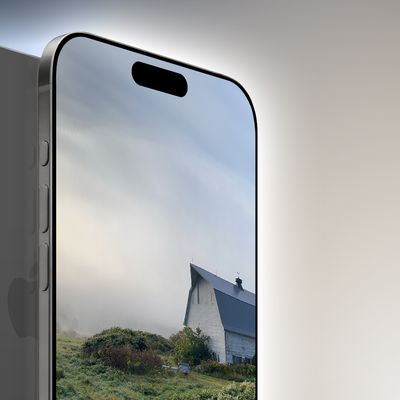 A Brazilian judge has ordered cellphone carriers to block access to WhatsApp for 72 hours throughout the Latin American country, after the Facebook-owned company refused to hand over information requested in a drug trafficking investigation (via Reuters).
A Brazilian judge has ordered cellphone carriers to block access to WhatsApp for 72 hours throughout the Latin American country, after the Facebook-owned company refused to hand over information requested in a drug trafficking investigation (via Reuters).
As reported last month, the instant messenger service recently enabled full end-to-end encryption, making all forms of communication sent within the app inaccessible to outside parties as well as the service operator.
Yesterday's decision by the judge applies to the five main wireless operators in Brazil and affects more than 100 million WhatsApp users in the country, where cellphone charges are relatively high.
This is not the first time the service has been the target of a blocking order. In December of last month, mobile providers in Brazil were ordered to block WhatsApp for 48 hours due to the service's failure to cooperate with criminal court orders in July and August 2015. However, the following morning, an appeal's court judge ordered that the ban be lifted for being an unreasonable response, recommending that the company be fined instead.
In March of this year, Facebook vice-president for Latin America Diego Dzodan was arrested in Brazil for not cooperating with an investigation in which WhatsApp conversations were requested, but was released the next day after the Court of Appeal held that the arrest was disproportionate. The judge who ordered WhatsApp's shutdown on Monday is the same one who ordered Dzodan's arrest.
Elsewhere last month, members of UK prime minister David Cameron's inner circle campaigning to remain in the European Union were accused of using WhatsApp to discuss tactics and avoid parliamentary referendum decisions from being subject to Freedom of Information requests. Only last year, Cameron proposed to ban online messaging software that offers end-to-end encryption which could allegedly allow suspected terrorists a safe means of communication.
WhatsApp is not the only messaging service that provides end-to-end encryption; Threema, Wickr, Signal, Silent Phone, and Cryptocat also provide encryption by default. Apple's iMessage also provides encryption, but does not display key fingerprints for verification. Apple's own legal issues over encryption came when the FBI attempted to compel the company to unlock San Bernardino terror suspect Farook Syed's iPhone, before the Justice Department announced it had found an alternate method to gain access to the iPhone in question and dropped the lawsuit.
While WhatsApp has been available as a smartphone app since January 2010, users have only been able to access their accounts on a computer since last year when a web browser client for the service was introduced. Last week, screenshots posted by WABetaInfo on Twitter appeared to show translation requests made by the WhatsApp team indicating that a dedicated OS X client is in the works. WhatsApp is also reportedly set to receive a video calling feature in the near future.
Acquired by Facebook in February 2014, WhatsApp is one of the most popular mobile apps worldwide. According to Statista statistics portal, in February the service recorded more than 1 billion active users worldwide, up from over 700 million in January 2015.
WhatsApp Messenger is a free download for iPhone on the App Store. [Direct Link]
Update 11:58 AM: A second judge has overturned the suspension, according to Reuters.
Note: Due to the political nature of the discussion regarding this topic, the discussion thread is located in our Politics, Religion, Social Issues forum. All forum members and site visitors are welcome to read and follow the thread, but posting is limited to forum members with at least 100 posts.
























Top Rated Comments
I understand working to limit drug trafficking is an important job and all since bad things tend to follow in its footsteps. But I doubt punishing 100 million people is proportionate to this crime either. That has to be quite some drugs they are hunting. Or maybe they just got angry.
If this was about a balanced punishment, they wouldn't let legit users take the toll so directly.
As a sidenote, maybe it's time to end prohibition of any drugs and come clean (pun not intended) on the lies that have been told for decades.
There's enough evidence by now that merely banning any kind of drug doesn't help anyone but organized crime.
Of course we would continue to see similarly stupid decisions over services like WhatsApp for other cases of crime prevention, but it's just something that reminded me how stupid the approach of trying keep a society drug-free is, not least because it fails hard every damn time and what you try to prevent only becomes a deeper problem spawning other crimes around it where third parties ACTUALLY ARE directly harmed as a result.
Common sense is rare in politics these days though, so although the process already started, it's going to be a while until we see betterment.
Until some God damn day everyone forgets about anything again, and tries to throw back society again.
Rinse and repeat.
Glassed Silver:mac